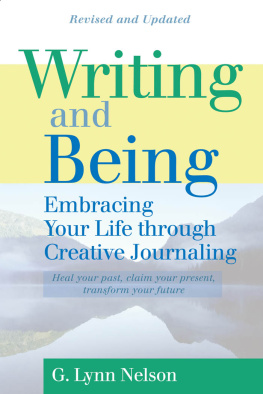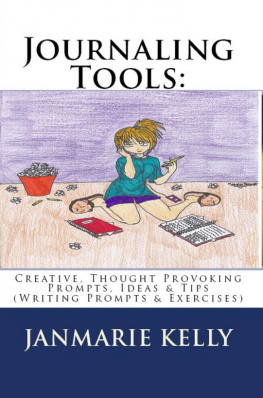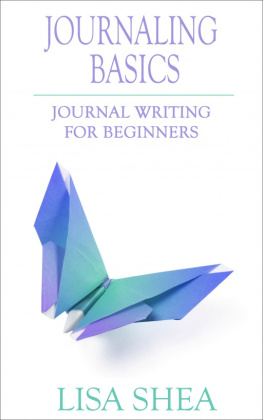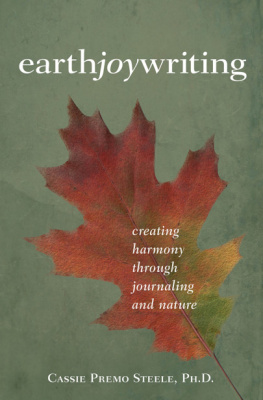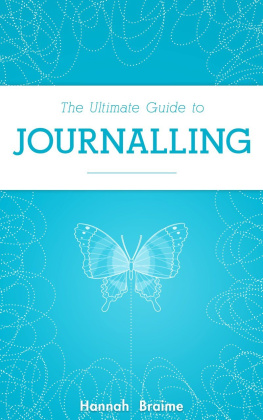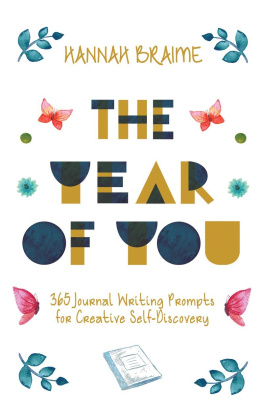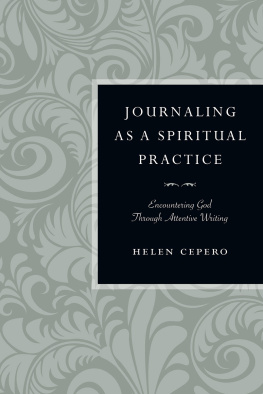Writing
and
Being
Taking Back Our Lives
Through the Power of Language
G. Lynn Nelson
New World Library
Novato, California
New World Library
14 Pamaron Way
Novato, California 94949
2004 by G. Lynn Nelson
All rights reserved. No part of this book may be reproduced by any means or in any form whatsoever without written permission from the publisher.
Cover design by Paul Goldstein
Book design by Suzanne Albertson
Publisher Cataloging-in-Publication Data
Nelson, G. Lynn, 1937
Writing and being : taking back our lives through the power of language / G. Lynn Nelson. Rev. ed.
p. cm.
Includes bibliographical references and index.
ISBN: 1-880913-63-5 (pbk.)
1. English languageRhetoricPsychological aspects. 2. DiariesAuthorshipProblems, exercises, etc. I. Title.
PE1408 .N46 2004
Printed on recycled paper
Grateful acknowledgment is made for permission to reprint the following copyrighted material:
Excerpt from Anne Frank: The Diary of a Young Girl by Anne Frank. 1952 by Otto H. Frank. Reprinted by permission of Doubleday, a division of Bantam Doubleday Dell Publishing Group, Inc.
Excerpt from The Three-Pound Universe by Judith Hooper and Dick Teresi. 1986 by Judith Hooper and Dick Teresi. Reprinted with the permission of Macmillan Publishing Company.
Excerpt from Raids on the Unspeakable by Thomas Merton. 1964 by The Abbey of Gethsemani, Inc. Reprinted by permission of New Directions.
Excerpt from House Made of Dawn by N. Scott Momaday. 1966, 1967, 1968 by N. Scott Momaday. Reprinted by permission of HarperCollins Publishers, Inc.
Excerpt from Zen Mind, Beginners Mind by Shunryu Suzuki. Reprinted by permission of Weatherhill Publishing, Inc.
Excerpt from Directions for the Contemplative Life by Meister Eckhart.
To my mother and father, Leah and Herb,
who grounded my life in love;
and to Lorrie, Amanda, and Robin,
whose love sustains me now.
Contents
Humankind has not woven the web of life. We are but one thread within it. Whatever we do to the web we do to ourselves. All things are bound together. All things connect. Whatever befalls the earth befalls the children of the earth.
C HIEF S EATTLE , 1855
S unday morning, I drove out to the reservation, to Simons place. I parked my truck beside his old adobe house that blends with the desert, turned off the engine, and sat for awhile in the sunshine and silence. The engine ticked; a fly buzzed; a lizard scurried beneath a creosote bush. The dog came firsttail wagging, smiling. I scratched his ears and talked to him. Then Simon appeared, walking in from the trail that leads back to his ceremonial grounds in the desert. His long, raven hair was pulled back in a ponytail. As always, his dark Apache face was open and clear and friendly. We shook hands, gently.
He rode along to show me where to find some willows for the meditation hogan I was building in my backyard, in Tempe. As we drove down a back trail past some desert land that was being bulldozed for irrigation and crops, Simon pointed to a lone cottonwood tree in the distance. Theres a hawk nest in that tree, he said quietly. They raised two babies this spring. I was afraid the farms people would bulldoze it.
As we got closer, I could see the nest high in the treeand a large red-tailed hawk on a branch nearby. About twenty yards out from the tree in each of the four directions, someone had placed tall branch-poles in the ground. From the top of each branch fluttered a small rag of color marking one of the sacred directions. And the bulldozers had turned aside.
The culture I was born intothe dominant, left-brained, technological cultureis too often a bulldozer. And when I am not careful (full of care), it makes of me a bulldozer without my even knowing. But when I am quiet and attentive, I see the colored rags flying everywhere, saying, This, too, is sacred.
May our time here together
be quiet and attentive;
may it lead us toward seeing the sacred,
toward hearing the silence,
toward meeting the light
which is coming over the hills.
All my relations....
GLN
In the white mans world, language... has undergone a process of change.... His regard for languagefor the Word itselfas an instrument of creation has diminished nearly to the point of no return. It may be that he will perish by the word.
N. S COTT M OMADAY ,
H OUSE M ADE OF D AWN
Taking Back the Gift of Language
T his is not a book about writing. This is a book about people writing. It is about writing as a tool for intellectual, psychological, and spiritual growth. It is about our language and our being and their powerful interconnectedness, which have often been taken away from us without our even knowing what we have lost. This book is about taking back the miraculous gift of our language and using it as an instrument of creation.
Ultimately, this book is about finding peace and love in our hearts. That sounds idealistic and grandiose, I know. Still, I have to say itbecause I see it happen all the time in the lives of my students and I feel its movement in my heart. My colleagues down the halls of the English department would snort and roll their eyes at words like peace and love in connection with writingjust as they already look askance at a course called Writing and Being. But I have been teaching such a course for almost ten years, and each semester I voluntarily teach an extra section of itand still I have to turn students away. For the most part, these students do not come for a grade or a degree. They come because, in a left-brained institution in a left-brained land, their hearts are starved. They come because they have heard about a course where you write for reasons beyond critical analysis and correctness, where you write to tell your own stories, to heal your wounds, to find a bit of peace and love.
Too often in school, we study language and writing in isolation, apart from the people who speak and write and apart from what happens when people speak and writeapart from our being. This is rather like studying the skeleton of a bird: The skeleton is, in limited ways, edifying and interesting, but it is dead. Such isolated language has no heart. Its true purposes and its real value are no longer there. It cannot fly nor sing.
To talk about writing apart from the people who do it, apart from their being, is to put writing in a small box and remove the wonder and the magic and the power from it. For the instructor, it is to play sad little games with languagecircling misspelled words and dangling participles, making students feel small and stupid, and turning them away from the power of their own words.
My workshops, classes, and this book are about taking back the gift of our language as an instrument of creation. To do that, we must first remind ourselves that language is not a subject we study in schoolthat is just one small thing we have done with it. I long ago noticed an interesting phenomenon. When I meet people for the first time and they ask me what I do, if I tell the truth and say, I am an English teacher, almost invariably they apologize, muttering something like, Oh, I was never very good at that. Then they become obviously uncomfortable around me, assuming I am listening intently for their mistakes in grammar and pronunciation (as they believe is the job of any good English teacher) and sidle away from me to go off and talk to a real person.

